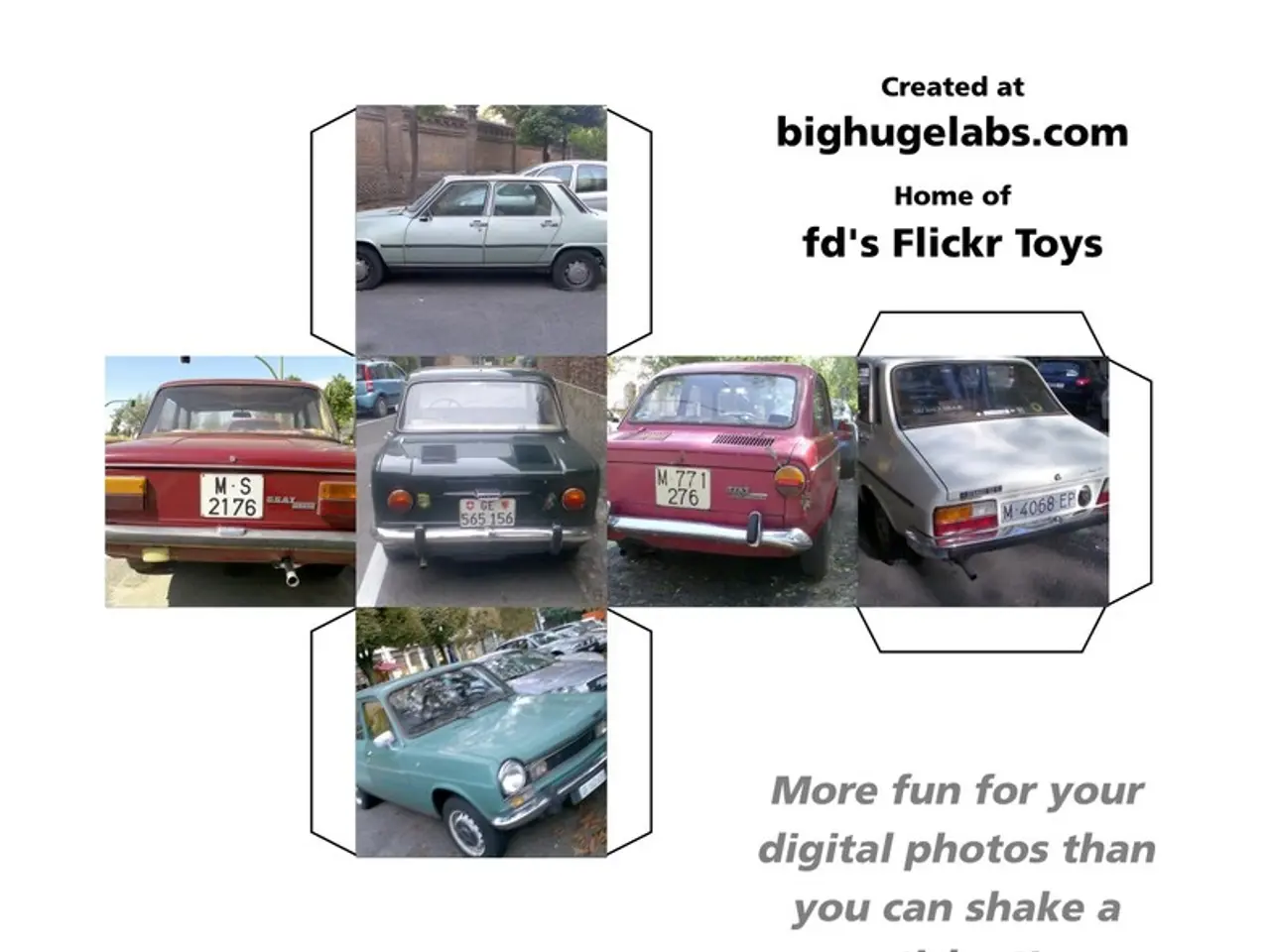Browse
In a significant move towards digitizing its automotive industry, China is developing a centralized digital platform to integrate vehicle purchase, insurance, tax payments, licensing, and financing processes. This initiative, which aims to streamline and digitize what has traditionally been a fragmented, multi-agency process for car buyers, involves a coalition of top automakers such as BYD, Geely, SAIC, FAW, Nio, and Xpeng, alongside government officials and regulators [1][2].
A symposium hosted by the China Association of Automobile Manufacturers on July 23, 2025, in Wuxi marked a significant step in this collaboration. Participants agreed on the need to establish nationwide standards, enhance interagency cooperation, expand online services, improve data connectivity, and employ secure technologies to optimize user experience [1][2].
The platform, currently in the pilot and development phase, is not limited to new car transactions. Other manufacturers such as GAC, Dongfeng, Geely, Great Wall, and Hyundai are preparing to launch similar digital vehicle registration services [2]. The initiative also targets reforms in the "zero-kilometre" used car market, aiming to increase transparency and prevent tax evasion by tracking vehicles resold shortly after registration [2].
Pilot programs in cities like Chongqing and Changzhou have demonstrated that fully online processing can reduce registration and related service time by approximately 60%, showing promise for scalable implementation across China [2]. Additionally, the initiative aligns with broader digital reforms incorporating AI-based vehicle pre-inspections at manufacturing sites to speed regulatory compliance [2].
Challenges persist, including incomplete data integration among tax, finance, and insurance departments. However, more than 200 million vehicle owners have benefited from digital documents, such as electronic driving licenses, reducing administrative burdens [2]. Regional policy variations complicate centralized implementation efforts, but manufacturers like Changan Automobile have already implemented factory-level inspections for all vehicles and completed over 700 online registrations [2].
While the platform's development is primarily focused on new car transactions, it fits into the larger context of China’s automotive industry increasingly advancing its technological self-sufficiency and digital ecosystem leadership. Domestic EV makers such as BYD, Nio, and Xpeng are deepening their integration of intelligent systems, and this digital platform complements such industry trends by improving operational efficiencies and consumer transparency [3].
The platform's future plans include nationwide rollout, expansion of online services, and enhanced cooperation among regulators, automakers, and service providers to establish a more transparent, efficient, and user-friendly automotive market in China [1][2]. Notable developments include the reveal of BYD's FCB Ti 3 "Black Myth: Wukong" special edition ahead of its debut, and the Yangwang U8L starting presales in China for $180,000 USD, positioning itself as a rival to the Rolls-Royce Cullinan [1][2].
References: [1] Xinhua News Agency. (2025, July 24). China pushes for digital platform to streamline automotive market. Retrieved from https://www.xinhuanet.com/english/2025-07/24/c_137600238.htm [2] China Daily. (2025, July 25). China's digital platform to revolutionize automotive market. Retrieved from https://www.chinadaily.com.cn/a/202507/25/WS610c7f0ba3107a8c232e2f1f.html [3] South China Morning Post. (2025, July 26). China's centralized digital platform to boost automotive industry's digital ecosystem leadership. Retrieved from https://www.scmp.com/business/china-business/article/3163424/chinas-centralized-digital-platform-boost-automotive-industrys
- The digital platform, aimed at revolutionizing China's automotive market, is not limited to new car transactions; it also targets reforms in the "zero-kilometre" used car market.
- China's centralized digital platform, which is currently in development, aligns with the larger context of the automotive industry increasingly advancing technological self-sufficiency and digital ecosystem leadership, with domestic EV makers such as BYD, Nio, and Xpeng deepening their integration of intelligent systems.








